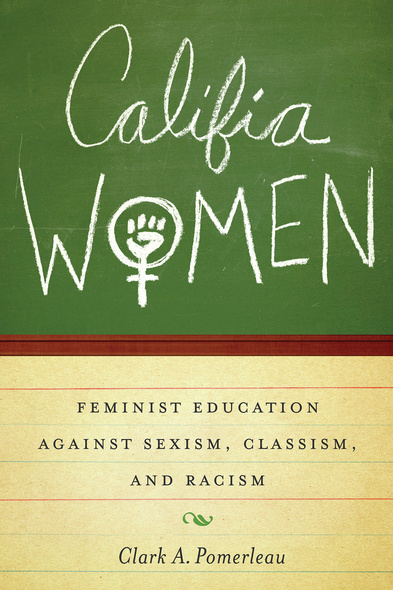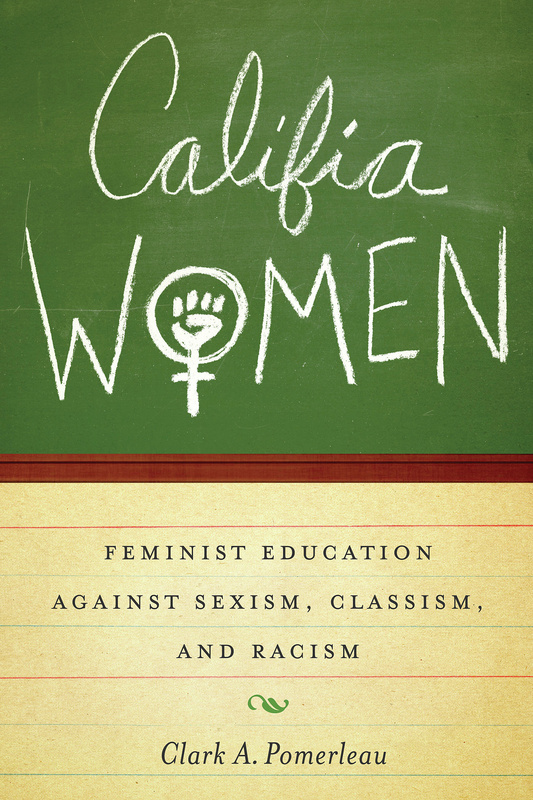Our shopping cart is currently down. To place an order, please contact our distributor, UTP Distribution, directly at utpbooks@utpress.utoronto.ca.
Califia Women
Feminist Education against Sexism, Classism, and Racism
Launched in 1975, the Califia Community organized activist educational camps and other programs in southern California until its dissolution in 1987. An alternative to mainstream academia’s attempts to tie feminism to university courses, Califia blended aspects of feminism that spanned the labels “second wave” and “radical,” attracting women from a range of gender expressions, sexual orientations, class backgrounds, and races or ethnicities. Califia Women captures the history of the organization through oral history interviews, archives, and other forms of primary research. The result is a lens for re-reading trends in feminist and social justice activism of the time period, contextualized against a growing conservative backlash.
Throughout each chapter, readers learn about the triumphs and frictions feminists encountered as they attempted to build on the achievements of the postwar Civil Rights movement. With its backdrop of southern California, the book emphasizes a region that has often been overlooked in studies of East Coast or San Francisco Bay–area activism. Califia Women also counters the notions that radical and lesbian feminists were unwilling to address intersectional identities generally and that they withdrew from political activism after 1975. Instead, the Califia Community shows evidence that these and other feminists intentionally created an educational forum that embraced oppositional consciousness and sought to serve a variety of women, including radical Christian reformers, Wiccans, scholars of color, and GLBT activists.
Ventures into entirely new territory [and] engages the larger political landscape as no prior work on feminist activism has done.
This book is a substantial and original piece of scholarship that addresses critical issues in women’s history and post-1945 history of social movements. Pomerleau’s study of Califia is important for a number of reasons. Previously there were no major studies of alternative educational institutions of Second Wave feminism despite their importance in the overall network of alternative institutions—bookstores, restaurants, record companies, health centers—created by feminists of the 1970s and 1980s. Califia Women argues that radical feminism and cultural feminism operated together, blending the political radicalism of the former and the ‘women’s culture’ of the latter. The book establishes that this type of radical movement extended well into the 1980s, a time that is often characterized as marked by a decline in radicalism, with a shift toward mainstream liberal politics such as the campaign for the Equal Rights Amendment. Finally, Califia Women offers a nuanced study of the tensions within feminism around race and class. Most important, Pomerleau succeeds in doing something few scholars have done: he makes radical lesbian feminism accessible to both scholars and students alike.
- Preface
- Introduction: Califia Community in Social Movement History
- 1. The Need for Community Education Projects
- Postwar Inequalities
- Educational Sexism
- Radical Community Education Antecedents
- Representative Feminist Institution Building
- 2. Founding, Fun, and Friction
- Woman-Identification and Alternative Education
- Learning from Sagaris
- “Califia Community is the daughter of Sagaris”
- The Draws for Califia Women
- Transformative Fun
- False Starts and Friction
- (Utopian?) Search for Feminist Community
- 3. Interest in Women
- Readiness for (Lesbian) Feminism 101
- Resistance to Lesbian Feminism and Its Consequences
- “Take Your Power!”
- Speaking Out against a Culture of Male Violence and Contributing to the Sex Wars
- The Boundaries of Alliances
- The Status of Children and Agents of Abuse
- “Patriarchy Made Simple” and U.S. Terrorism
- 4. Channeling Class Resentments
- Class Context and Anticommunism
- Reliance on Working-Class Experience
- Classes of Impact
- Feminist Class Consciousness amid the Feminization of Poverty
- 5. Antiracism to Get under the Skin
- De Facto Segregation
- Racism in Black and White
- Fateful Recruitment
- Integrating Difference
- Who Should Teach and Learn about Racism?
- Ethnic Awareness
- From CR to WWAR
- Compromising on Bread-and-Butter Issues
- 6. The Right Attacks and Internal Divisions
- Betty Brooks Besieged
- Personal and Political Fallout over Custody
- Women of Color Spaces
- Beyond the Original Califia
- Lesbian Feminists Attacked as Aiding the Right
- Community Education Disrupted
- Conclusion: Enduring Legacies for “the Week”
- Paths to the Weekend
- Notes
- References
- Index





